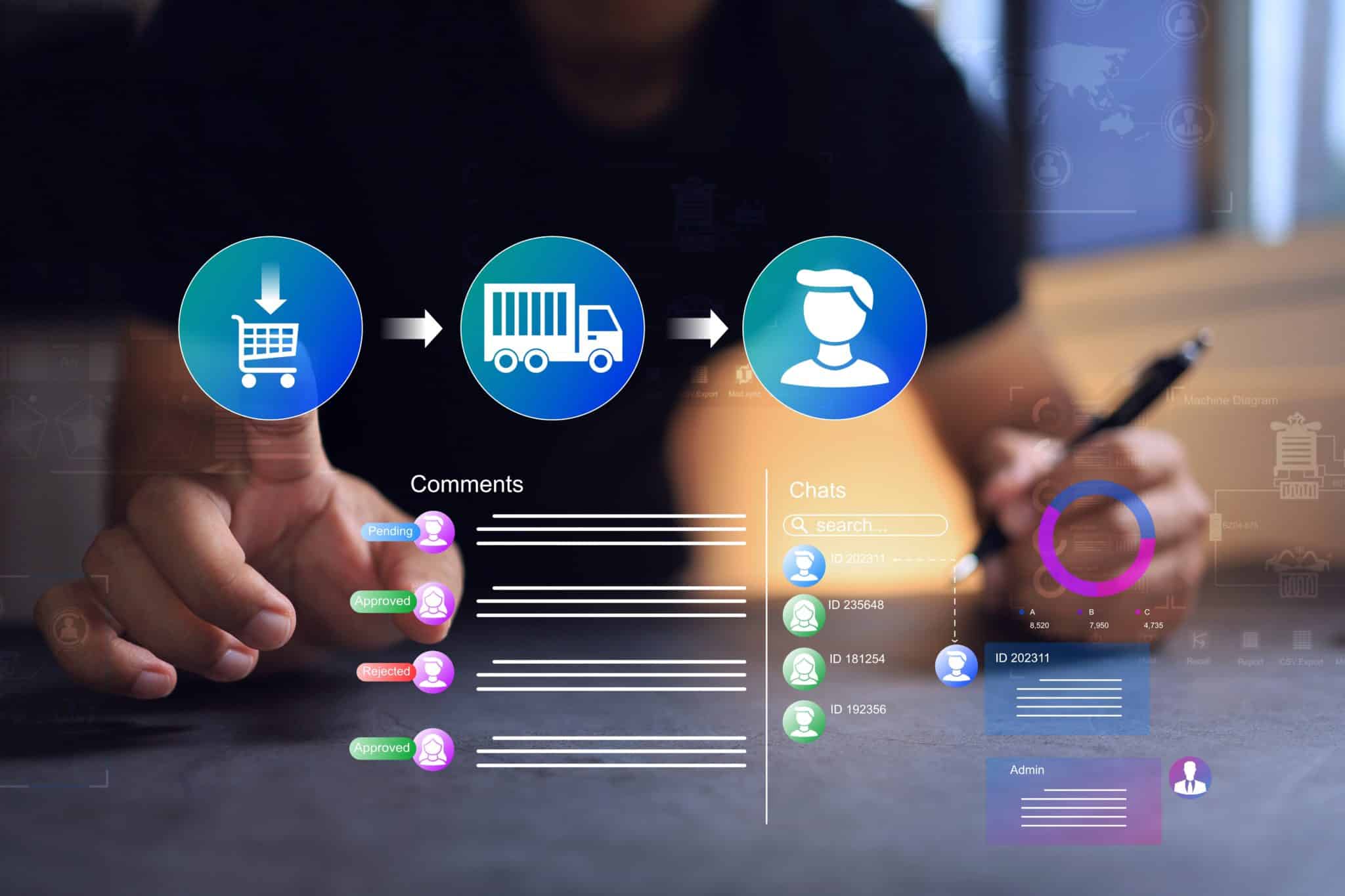
Staying In The Loop – How A South African Tech Startup Is Leveraging Google Cloud To Optimize Its Processes
Have you ever heard of the ‘last mile’ in logistics? In a product’s journey from the warehouse to your door, the last mile is the final stage in the process. Not only is it the hardest to get right, and the most time-consuming leg of product delivery, it’s also the most expensive, reportedly accounting for around 50% of total shipping costs. If you’ve ever waited hours for a package that was “out for delivery”, you’ll understand exactly how inefficient this final step can be.
Luckily for the industry, and for customers, a number of new and emerging tools and technologies are being developed and deployed to improve last mile delivery. These solutions make smarter and simpler deliveries possible. Solutions like Loop, a delivery management app that is optimizing and shaking up the logistics space by improving the interactions between everyone across the supply chain – from the business and the driver, to the end customer.
Loop was founded by Kimberley Taylor, who came up with the idea for the business while completing a university assignment. She was asked to solve the traditional travelling salesman problem– the salesman has to visit every city on a list starting from a particular location and ending at the start location.
The challenge is to minimize the length of the trip by finding the most efficient route. Solving this route optimization problem opened the door for Taylor to ask even more questions about the visibility and communication issues that exist within the delivery space. And she immediately knew that there were a number of problems that needed to be solved.
Despite describing herself as a “non- technical founder”, Taylor wanted to create a ‘piece of tech’ to help the industry improve their operations and streamline these processes. When looking for the right solution to bring her idea to life, she was introduced to Google Cloud Platform (or GCP) by the development house she was working with at the time and quickly realized just how well-suited GCP’s tools and technologies were to her needs.
“To be honest, I didn’t really know any better back then, but in hindsight, I’m insanely grateful for the recommendation because, from the beginning, GCP was very easy to use and intuitive for someone like me who isn’t very technical,” she explains. “I think that this was just one of those steps on my journey where I got a bit of luck – I met the right people and found the right tools.”
Starting out in the fast food and on-demand space, Taylor learned a lot about the difference between what she dubs ‘difficult’ and ‘easy’ logistics.
“I quite naively thought that fast food was easy logistics but I was very wrong because you have such a short amount of time to do a delivery and there really is very little room for error,” she says.
But Taylor is quick to note that this was actually a huge blessing in disguise because it meant that the Loop platform had to offer real-time data capabilities, as well as greater visibility and scalability from the very beginning. Delivering on these requirements was made possible, in large part, by GCP.
For her, the different Google Maps APIs have proved incredibly helpful because it allows Loop to access live traffic and distance data in real-time from anywhere around the world; the alternative would be to build and source its own database, which would have prevented Loop from getting to market as efficiently as it did.
All of the data powering the platform is stored on BigQuery, Google’s data analytics warehouse. It allows them to analyze and better understand the massive amount of logistics and customer data it generates and captures each day. In addition, Taylor leveraged Looker Studio to bring data together and create customizable and informative reports and dashboards; a capability she had promised to a client early on in her entrepreneurship journey.
“When you’re selling and you’ve never built a piece of tech before, you often promise more than you should,” she says. In Taylor’s case, she told a client that Loop could provide advanced data analytics capabilities, with dashboards to showcase what the data meant, but she wasn’t sure how to actually deliver on this promise. “Honestly, Looker Studio was the most amazing tool,” she says, noting that she has witnessed the tool grow and evolve into something even more powerful over the course of the seven years she’s been using it.
“I’m not a developer but because the Google platform is so intuitive and easy to use, I could go into the backend and look at error logs without having to bug the developers every time I had a question. The process of using GCP has been insanely empowering for me.”
So, how does Argility, part of the Smollan Data and Tech Cluster and a top Google analytics partner through Digicloud Africa, come into all this?
Having successfully made a name for themselves in this space, Taylor and her team realized that they needed a little extra help growing and improving their processes, without dramatically increasing their costs. For Japie Saunders, Head of IT & Infrastructure at Argility, the challenge was to make sure that Loop has the right infrastructure in place and that the overall layout of the business is set up in a way that it can grow securely and fully comply with different regulations and requirements.
“Often, start-ups don’t have the know-how or the right guidance when it comes to something like security. This needs to be addressed before the business gets too big,” he says. “For Loop, this meant organizing projects using a clear hierarchy, with different tiers of staff allocated to different projects, so that they can refine access and only allow the right people to access certain information.”
Beyond this, Taylor notes that having a partner who really understands Google’s suite of products in detail, including security, has been invaluable. “We haven’t had this before,” she says. “Because they understand how to put things together in a smarter and more logical way, they are helping us to identify creative ways to up our efficiency and minimize our costs.”
According to Taylor, on average Loop sees a 20% reduction in kilometers driven with route optimization, i.e. determining the best sequence for the delivery of a series of orders. And when route optimization is combined with route planning – the step before route optimization which determines the best vehicle to use given the number and size of orders that need to be completed – this 20% increases to 30%.
Similarly, when you give customers greater visibility around where the driver is, you can reduce the amount of time they spend with a customer by 50%.
While Taylor acknowledges the power of digital solutions and technologies, she points out that tech for the sake of tech is just silly. “At the end of the day, it’s cool to have the best tech but you need to understand that people really want to make money or save money. They want results.” That is exactly what Loop delivers.
Markets can also find themselves becalmed from time to time, sometimes for years. Tweak the portfolio around the fringes then too, if necessary, but keep the bow pointed forward and wait for the market winds to pick up again.
Investment portfolios are lifelong vessels that do not demand constant attention. Staying the course and adhering to long- term goals is vital to ensuring financial stability and allowing investors to enjoy the sunset of their lives without the reliance on “two- minute noodles.”
Source: Forbes Africa

